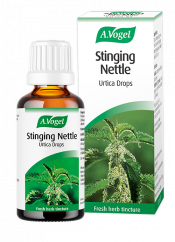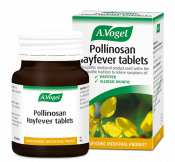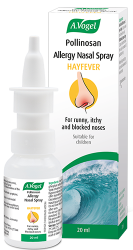Treating allergies with nettle
Allergic rhinitis is increasingly common. Although this shares the same symptoms as hayfever, these can occur all year round rather than just through the pollen season. Allergic rhinitis can also be triggered by a variety of symptoms and not just pollen. These include house dust mites, animal hair, traffic fumes, plant moulds, feathers in pillows, cleaning materials, air fresheners, perfumes, aftershaves and deodorants.
Natural remedies can be really useful in relieving both hayfever and allergic rhinitis symptoms, with nettle being one lesser-known, but no less effective, option.
In this blog I take a look at:
- How nettle can help allergy symptoms
- How to consume nettle safely.
How does nettle help allergy symptoms?
Nettle is widely considered a natural antihistamine, but research shows it can also inhibit several of the inflammatory events that cause the symptoms of allergic rhinitis.
Research has pinpointed the chemical pathways with which nettle interferes to reduce these symptoms.1
Upon contact with an allergen, histamine is released from mast cells and basophils. Histamine receptors (of which there are 4) are then activated, with H1 and H2 being the ones most associated with allergic responses.
Histamine-1 receptors are found in the walls of blood vessels, particularly in the respiratory system and cardiovascular system. When they are activated by histamine, they set off various reactions, including increasing the permeability of blood vessels. This promotes the movement of immune cells, and increases the sensitivity of sensory nerves in the respiratory tract. This makes the whole respiratory system more likely to react to anything it encounters.
Nettle is helpful here as it has antagonist and negative agonist activity, meaning it may block the receptor sites that histamine usually latches on to.
Moreover, nettle may inhibit tryptase, an enzyme that is released alongside histamine and which promotes its effects. Inhibiting it is therefore useful in reducing allergic responses.
How do you consume nettle?
If allergic rhinitis brings out itchy skin, bumpy red rashes or inflamed skin you may benefit from nettle. Nettle teas are widely available in health food stores and supermarkets, or you could take a nettle tincture several times daily.
Extra allergy tips
To keep your histamine levels balanced, consider these simple tips:
- Cut out energy drinks and keep caffeine to a minimum – try a herbal tea (such as nettle!) as an alternative.
- If you're sensitive to pollen, reduce your exposure to it by getting a neighbour or friend to mow your lawn, instead of tackling it yourself.
- Be wary of mucus-inducing dairy products which can make congestion and a runny nose worse.
- Try to focus on fresh and dried fruit for sweet snacks instead of sugary cakes and biscuits. These fresh options will provide immune-boosting nutrients to help your body deal with allergens, whilst sugar can make the inflammatory symptoms of an allergy worse, so is best avoided.
- The harsh cleaning chemicals used in swimming pools can trigger reactions in a sensitive respiratory system. Try to limit your time in these areas if this is the case - you can check out our Get Active hub for some alternative sports.
- When was the last time you cleared out your make-up bag or cleaned your bathroom cabinet? Make sure anything that goes on your skin or around your eyes or mouth is in date and really clean to avoid a reaction.
References
1 https://www.ncbi.nlm.nih.gov/pubmed/19140159
Results: Have you tried nettle to manage your allergies?












